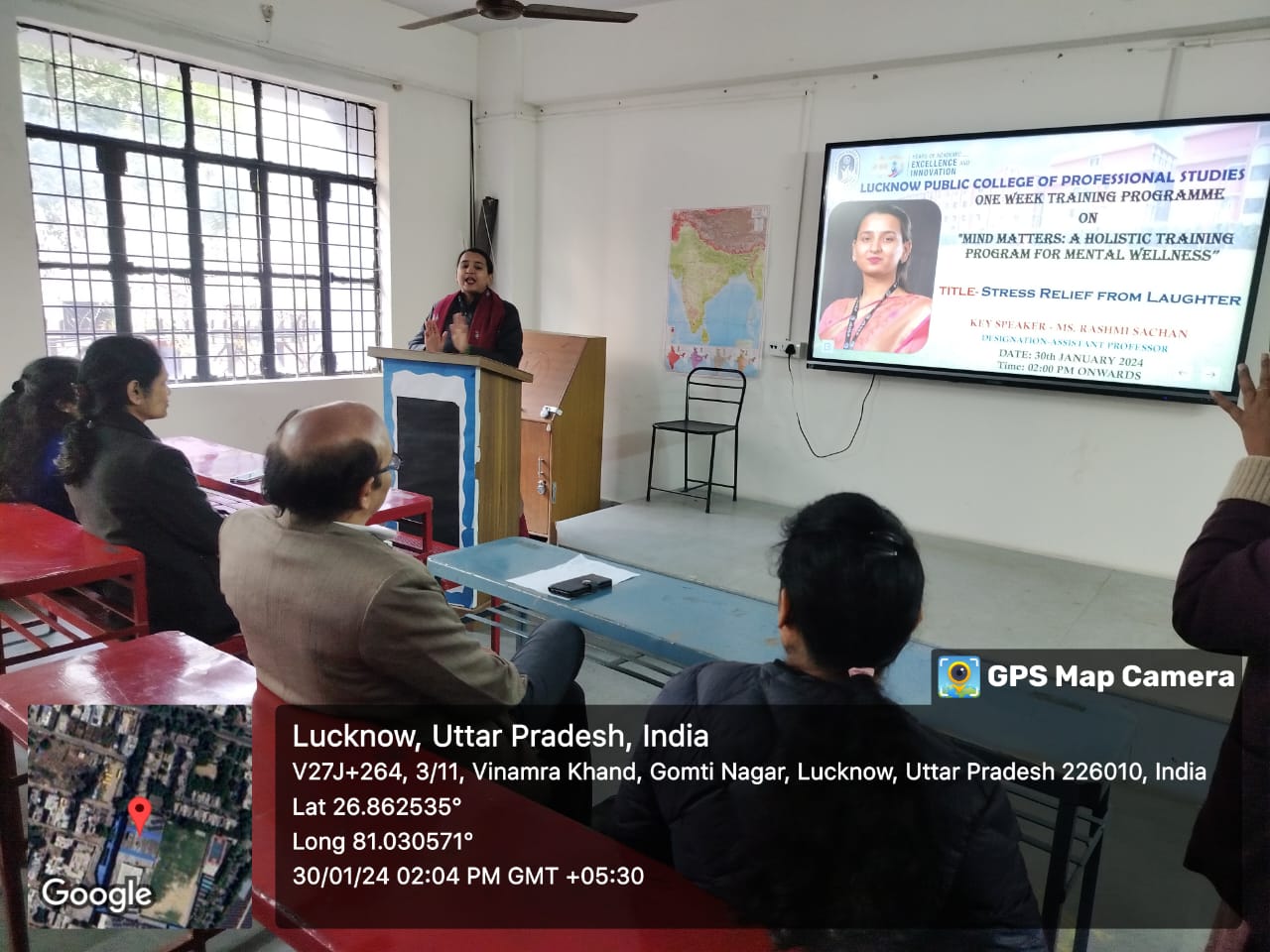Seminars
ONE DAY SEMINAR ON ADDRESSING THE RISE OF MENTAL HEALTH CHALLENGES IN TODAY’S SOCIETY: STRATEGIES FOR SUPPORT AND PREVENTION

ONE DAY
SEMINAR
ON
ADDRESSING THE RISE OF MENTAL HEALTH CHALLENGES IN TODAY’S SOCIETY: STRATEGIES FOR SUPPORT AND PREVENTION
Organized by
Internal Quality Assurance Cell (IQAC) LUCKNOW PUBLIC COLLEGE OF PROFESSIONAL STUDIES (LPCPS)
(Affiliated to University of Lucknow, Lucknow, U.P., India)
Vinamra Khand, (Near Kathauta Lake) Gomti Nagar, Lucknow
Date: March 28, 2024 Time: 11:30 AM onwards
This one-day seminar on "Addressing the Rise of Mental Health Challenges in Today's Society: Strategies for Support and Prevention" is organized to raise awareness and provide actionable strategies to address the growing mental health issues prevalent in today's society. This seminar aims to equip participants with the knowledge and tools to identify early signs of mental health challenges, offer support to those in need, and implement preventive measures. By fostering an open dialogue and providing evidence-based information, the seminar seeks to create a supportive environment within educational institutions, promoting mental well-being and resilience among students and faculty alike.
INVITED SPEAKER
Dr. Shailesh Srivastava, Associate Professor Department of Zoology.
Dr. Shailesh Srivastava was talking about Mental health promotion attempts to encourage and increase protective factors and healthy behaviors that can help prevent the onset of a diagnosable mental disorder and reduce risk factors that can lead to the development of a mental disorder.2 It also involves creating living conditions and environments that support mental health and allow people to adopt and maintain healthy lifestyles or “a climate that respects and protects basic civil, political, socio-economic and cultural rights is fundamental to mental health promotion. Without the security and freedom provided by these rights, it is very difficult to maintain a high level of mental health.”3
Specifically, mental health can be promoted through-
- Early childhood interventions (e.g., home visits for pregnant women, pre-school psychosocial activities);
- providing support for children (e.g., skills-building programs, child and youth development programs);
- programs targeted at vulnerable groups, including minorities, indigenous people, migrants, and people affected by conflicts and disasters (e.g., psychosocial interventions after disasters);
- incorporating mental health promotional activities in schools (e.g., programs supporting ecological changes in schools and child-friendly schools);
- violence prevention programs; and, among others,
- community development programs.4
Dr. Shailesh Srivastava was talking about Positive youth development is defined by the Interagency Working Group on Youth Programs as an intentional, pro-social approach that
- engages youth within their communities, schools, organizations, peer groups, and families in a manner that is productive and constructive;
- recognizes, utilizes, and enhances youths' strengths; and
- promotes positive outcomes for young people by providing opportunities, fostering positive relationships, and furnishing the support needed to build on their leadership strengths.
It provides a lens for promoting the mental health of youth by focusing on protective factors in a young person's environment, and on how these factors could influence one's ability to overcome adversity. Learn more about positive youth development.



